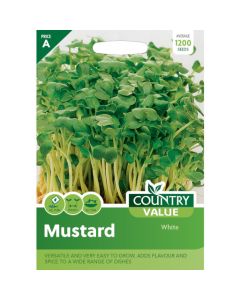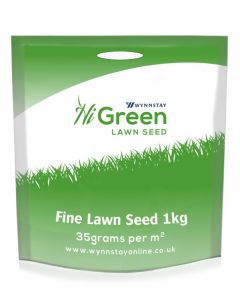As the sun begins to shine a bit more and the days are getting longer, it is the time of year that we will start to get out into our gardens more. To prepare the flowers and plants for the season ahead, there are a few chores we can begin to undertake. Here is a short list of some jobs we can all begin this Spring.
Weeding your garden
Spring is the perfect time to start getting rid of those unwanted weeds. Ensuring you keep up with weeding will reduce the competition the important garden plants will be in with the weeds, allowing more light and water to be readily available for growth. Mulching can be used to reduce the number of weeds that can germinate in your garden. The technique includes adding a layer of additional material to the topsoil, this will smother any weeds trying to germinate while also controlling soil temperature and structure.
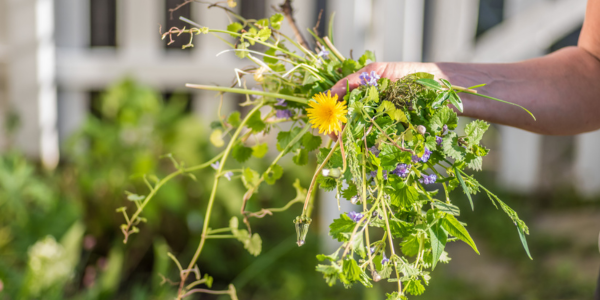

Take care of wildlife
Spring comes the time when we will be tidying up hedgerows and pruning bushes or shrubs in our gardens, but this also brings the time for wildlife to be visiting. When cutting back that winter growth, keep an eye out for insects, birds, and even hedgehogs waking up from hibernation.
You can provide kitten biscuits or wet cat or dog food in the evenings to encourage hedgehogs to your garden, after their long hibernation period, some additional food would be appreciated. On the other hand, birds would be grateful for a supply of fat balls, nuts, or seeds, even as the weather begins to warm. Ensure any food you put out for the wildlife is cleaned and replaced with fresh supplies before any mould or rodents are attracted.
Read more: What to feed wild birds in your garden
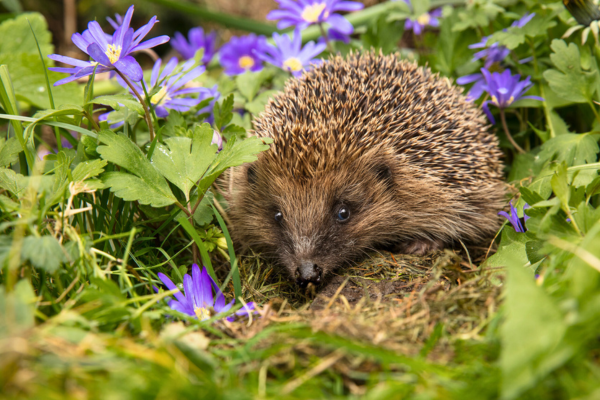

Always make space for fresh sources of water in your garden, as garden wildlife will need water for drinking and bathing.
Deadhead your bulbs
During your garden spring cleaning, you can help those spring blooming bulbs such as tulips and daffodils, by deadheading them and leaving their leaves to naturally die down. The energy will return to the spring bulbs as they wither, allowing them a good chance to produce lots of flowers the following year. If you are wanting more space in your garden during this time of the year, you can carefully lift the bulbs with a garden fork and leave them to dry before storing them in a dry and cool place ready for autumn.
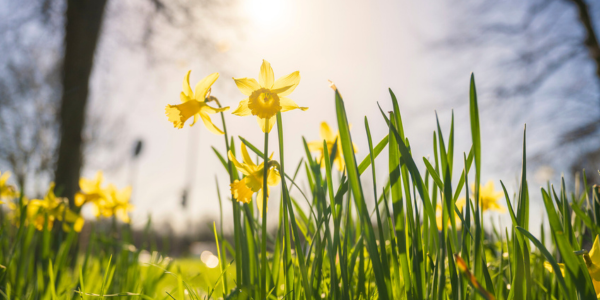

No Mow May
Although spring is the time for tidying your garden from winter, it is also the time to encourage those all-important pollinators. Allowing parts of your garden to grow for a few more weeks at a time will enable more flowers to thrive and provide pollen for pollinators. Bees and other pollinators are highly important for life, so joining in on No Mow May will give them that extra boost of pollen to spread around to help our garden grow.
In areas of your garden where bare patches can be seen, you can consider reseeding these patchy areas to get your garden ready for summer with a fresh, green lawn.
Read more: How to attract pollinators to your garden


Growing in containers
If you have a small garden or a greenhouse you would like to fill, growing many plants or flowers in containers could be a helpful alternative. Ensuring you research what you are wanting to plant outdoors or in a greenhouse is key to growing a thriving plant. Bulbs, annuals, and herbs are all great for growing in containers, and you can even place those herbs such as parsley or basil in your kitchen to grow and use. To give them the best start always use a good quality compost and research how often the specific plant will need to be watered (Helpful neighbours may be able to help if you venture away on holiday).
What can we plant in May?
- Beetroot
- Cucumber
- Carrots
- Rocket
- Basil
- Dill
- Sunflowers
- Cornflowers
- Strawberries
- Gooseberries
-
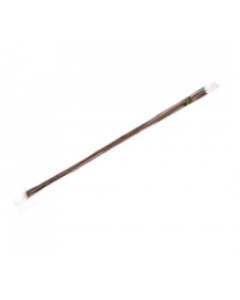 Garden Cane 8"£1.25 £1.04available for collection fromPlease select a Branch to view stock levelsPlease select all required options to show stock at
Garden Cane 8"£1.25 £1.04available for collection fromPlease select a Branch to view stock levelsPlease select all required options to show stock at -
 Garden Cane 6' (Sold Individually)£1.00 £0.83available for collection fromPlease select a Branch to view stock levelsPlease select all required options to show stock at
Garden Cane 6' (Sold Individually)£1.00 £0.83available for collection fromPlease select a Branch to view stock levelsPlease select all required options to show stock at -
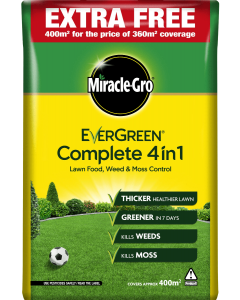 EverGreen Complete 4 in 1£28.36 £23.63available for collection fromPlease select a Branch to view stock levelsPlease select all required options to show stock at
EverGreen Complete 4 in 1£28.36 £23.63available for collection fromPlease select a Branch to view stock levelsPlease select all required options to show stock at -
 Tree Tie 50cm£2.00 £1.67available for collection fromPlease select a Branch to view stock levelsPlease select all required options to show stock at
Tree Tie 50cm£2.00 £1.67available for collection fromPlease select a Branch to view stock levelsPlease select all required options to show stock at -
 Country Value Cress Fine Curled£1.00 £0.83available for collection fromPlease select a Branch to view stock levelsPlease select all required options to show stock at
Country Value Cress Fine Curled£1.00 £0.83available for collection fromPlease select a Branch to view stock levelsPlease select all required options to show stock at -
 Country Value Pepper (Hot) De Cayenne£0.83 £0.83available for collection fromPlease select a Branch to view stock levelsPlease select all required options to show stock at
Country Value Pepper (Hot) De Cayenne£0.83 £0.83available for collection fromPlease select a Branch to view stock levelsPlease select all required options to show stock at -
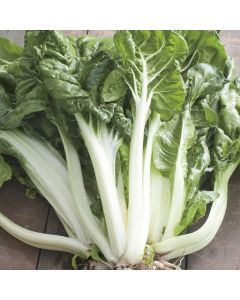 Country Value Chard White Silver 2£0.83 £0.83available for collection fromPlease select a Branch to view stock levelsPlease select all required options to show stock at
Country Value Chard White Silver 2£0.83 £0.83available for collection fromPlease select a Branch to view stock levelsPlease select all required options to show stock at -
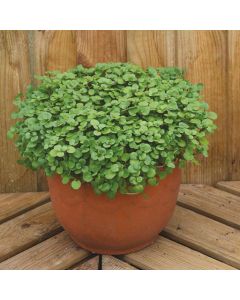 Country Value Watercress Aqua£0.83 £0.83available for collection fromPlease select a Branch to view stock levelsPlease select all required options to show stock at
Country Value Watercress Aqua£0.83 £0.83available for collection fromPlease select a Branch to view stock levelsPlease select all required options to show stock at -
 Country Value Turnip Snowball£0.83 £0.83available for collection fromPlease select a Branch to view stock levelsPlease select all required options to show stock at
Country Value Turnip Snowball£0.83 £0.83available for collection fromPlease select a Branch to view stock levelsPlease select all required options to show stock at -
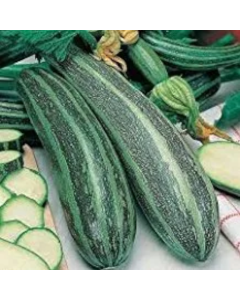 Country Value Marrow Long Green Bush 2£0.83 £0.83available for collection fromPlease select a Branch to view stock levelsPlease select all required options to show stock at
Country Value Marrow Long Green Bush 2£0.83 £0.83available for collection fromPlease select a Branch to view stock levelsPlease select all required options to show stock at -
 Country Value Pepper (Hot) Chilli Mixed£0.83 £0.83available for collection fromPlease select a Branch to view stock levelsPlease select all required options to show stock at
Country Value Pepper (Hot) Chilli Mixed£0.83 £0.83available for collection fromPlease select a Branch to view stock levelsPlease select all required options to show stock at -
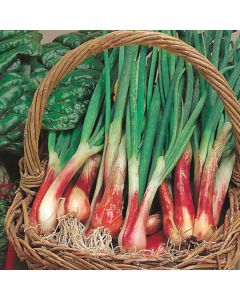 Country Value Onion (Spring) North Holland Blood Red£0.83 £0.83available for collection fromPlease select a Branch to view stock levelsPlease select all required options to show stock at
Country Value Onion (Spring) North Holland Blood Red£0.83 £0.83available for collection fromPlease select a Branch to view stock levelsPlease select all required options to show stock at -
 Country Value Tomato Roma VF£0.83 £0.83available for collection fromPlease select a Branch to view stock levelsPlease select all required options to show stock at
Country Value Tomato Roma VF£0.83 £0.83available for collection fromPlease select a Branch to view stock levelsPlease select all required options to show stock at -
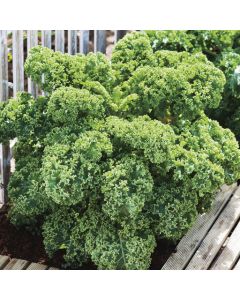 Country Value Kale Dwarf Green Curled£0.83 £0.83available for collection fromPlease select a Branch to view stock levelsPlease select all required options to show stock at
Country Value Kale Dwarf Green Curled£0.83 £0.83available for collection fromPlease select a Branch to view stock levelsPlease select all required options to show stock at -
 Country Value Dill£0.83 £0.83available for collection fromPlease select a Branch to view stock levelsPlease select all required options to show stock at
Country Value Dill£0.83 £0.83available for collection fromPlease select a Branch to view stock levelsPlease select all required options to show stock at -
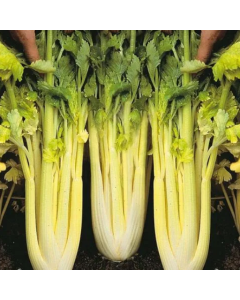 Country Value Celery Golden Self Blanching 3£0.83 £0.83available for collection fromPlease select a Branch to view stock levelsPlease select all required options to show stock at
Country Value Celery Golden Self Blanching 3£0.83 £0.83available for collection fromPlease select a Branch to view stock levelsPlease select all required options to show stock at -
 Country Value Squash (Winter) Butternut Butterfly F1£0.83 £0.83available for collection fromPlease select a Branch to view stock levelsPlease select all required options to show stock at
Country Value Squash (Winter) Butternut Butterfly F1£0.83 £0.83available for collection fromPlease select a Branch to view stock levelsPlease select all required options to show stock at -
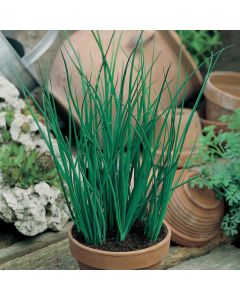 Country Value Chives£0.83 £0.83available for collection fromPlease select a Branch to view stock levelsPlease select all required options to show stock at
Country Value Chives£0.83 £0.83available for collection fromPlease select a Branch to view stock levelsPlease select all required options to show stock at -
 Country Value Pumpkin Jack O'Lantern£0.83 £0.83available for collection fromPlease select a Branch to view stock levelsPlease select all required options to show stock at
Country Value Pumpkin Jack O'Lantern£0.83 £0.83available for collection fromPlease select a Branch to view stock levelsPlease select all required options to show stock at -
 Claber Multithread Tap Connector£6.76 £5.63available for collection fromPlease select a Branch to view stock levelsPlease select all required options to show stock at
Claber Multithread Tap Connector£6.76 £5.63available for collection fromPlease select a Branch to view stock levelsPlease select all required options to show stock at -
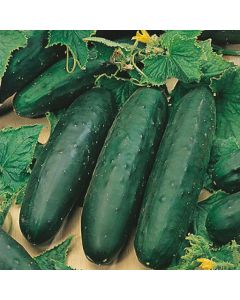 Country Value Cucumber Marketmore 76£0.83 £0.83available for collection fromPlease select a Branch to view stock levelsPlease select all required options to show stock at
Country Value Cucumber Marketmore 76£0.83 £0.83available for collection fromPlease select a Branch to view stock levelsPlease select all required options to show stock at -
 Country Value Pea (Mangetout) Oregon Sugar Pod£1.30 £1.08available for collection fromPlease select a Branch to view stock levelsPlease select all required options to show stock at
Country Value Pea (Mangetout) Oregon Sugar Pod£1.30 £1.08available for collection fromPlease select a Branch to view stock levelsPlease select all required options to show stock at -
 Country Value Pumpkin Big Max£0.83 £0.83available for collection fromPlease select a Branch to view stock levelsPlease select all required options to show stock at
Country Value Pumpkin Big Max£0.83 £0.83available for collection fromPlease select a Branch to view stock levelsPlease select all required options to show stock at -
 Country Value Dwarf Bean Tendergreen Seeds£1.08 £1.08available for collection fromPlease select a Branch to view stock levelsPlease select all required options to show stock at
Country Value Dwarf Bean Tendergreen Seeds£1.08 £1.08available for collection fromPlease select a Branch to view stock levelsPlease select all required options to show stock at -
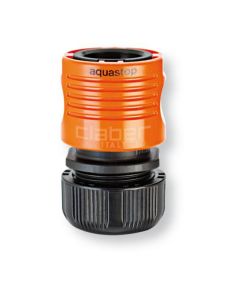 Claber Aquastop Coupling 1/2"£7.75 £6.46available for collection fromPlease select a Branch to view stock levelsPlease select all required options to show stock at
Claber Aquastop Coupling 1/2"£7.75 £6.46available for collection fromPlease select a Branch to view stock levelsPlease select all required options to show stock at -
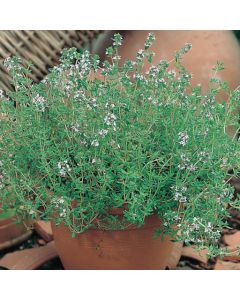 Country Value Thyme£0.83 £0.83available for collection fromPlease select a Branch to view stock levelsPlease select all required options to show stock at
Country Value Thyme£0.83 £0.83available for collection fromPlease select a Branch to view stock levelsPlease select all required options to show stock at -
 Claber Hose Repairer 1/2"£4.25 £3.54available for collection fromPlease select a Branch to view stock levelsPlease select all required options to show stock at
Claber Hose Repairer 1/2"£4.25 £3.54available for collection fromPlease select a Branch to view stock levelsPlease select all required options to show stock at -
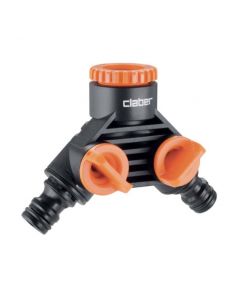 Claber Tap Connector Double£14.75 £12.29available for collection fromPlease select a Branch to view stock levelsPlease select all required options to show stock at
Claber Tap Connector Double£14.75 £12.29available for collection fromPlease select a Branch to view stock levelsPlease select all required options to show stock at - New
 Country Value Parsley Moss Curled 2£0.83 £0.83available for collection fromPlease select a Branch to view stock levelsPlease select all required options to show stock at
Country Value Parsley Moss Curled 2£0.83 £0.83available for collection fromPlease select a Branch to view stock levelsPlease select all required options to show stock at -
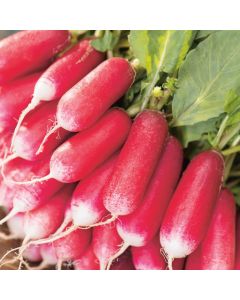 Country Value Radish French Breakfast 3£0.83 £0.83available for collection fromPlease select a Branch to view stock levelsPlease select all required options to show stock at
Country Value Radish French Breakfast 3£0.83 £0.83available for collection fromPlease select a Branch to view stock levelsPlease select all required options to show stock at -
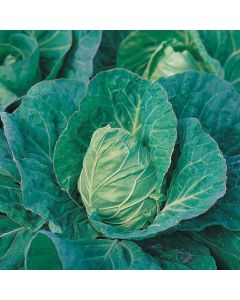 Country Value Cabbage Greyhound£0.83 £0.83available for collection fromPlease select a Branch to view stock levelsPlease select all required options to show stock at
Country Value Cabbage Greyhound£0.83 £0.83available for collection fromPlease select a Branch to view stock levelsPlease select all required options to show stock at -
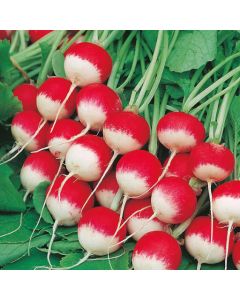 Country Value Radish Sparkler 3£0.83 £0.83available for collection fromPlease select a Branch to view stock levelsPlease select all required options to show stock at
Country Value Radish Sparkler 3£0.83 £0.83available for collection fromPlease select a Branch to view stock levelsPlease select all required options to show stock at -
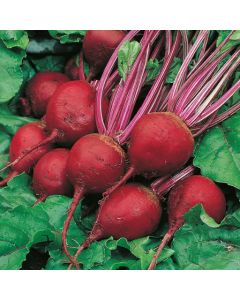 Country Value Beetroot Perfect 3 Seeds£0.83 £0.83available for collection fromPlease select a Branch to view stock levelsPlease select all required options to show stock at
Country Value Beetroot Perfect 3 Seeds£0.83 £0.83available for collection fromPlease select a Branch to view stock levelsPlease select all required options to show stock at -
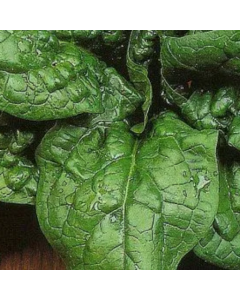 Country Value Spinach America£0.83 £0.83available for collection fromPlease select a Branch to view stock levelsPlease select all required options to show stock at
Country Value Spinach America£0.83 £0.83available for collection fromPlease select a Branch to view stock levelsPlease select all required options to show stock at -
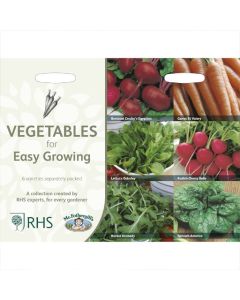 Country Value Vegetables for Easy Growing Collection£1.99 £1.99available for collection fromPlease select a Branch to view stock levelsPlease select all required options to show stock at
Country Value Vegetables for Easy Growing Collection£1.99 £1.99available for collection fromPlease select a Branch to view stock levelsPlease select all required options to show stock at -
 Country Value Runner Bean Scarlet Emperor Seeds£1.08 £1.08available for collection fromPlease select a Branch to view stock levelsPlease select all required options to show stock at
Country Value Runner Bean Scarlet Emperor Seeds£1.08 £1.08available for collection fromPlease select a Branch to view stock levelsPlease select all required options to show stock at -
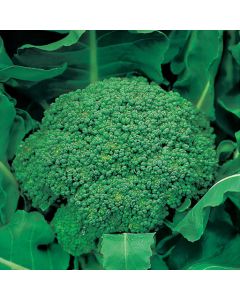 Country Value Broccoli (Autumn) Green Calabrese£0.83 £0.83available for collection fromPlease select a Branch to view stock levelsPlease select all required options to show stock at
Country Value Broccoli (Autumn) Green Calabrese£0.83 £0.83available for collection fromPlease select a Branch to view stock levelsPlease select all required options to show stock at -
 Country Value Runner Bean Enorma Seeds£1.08 £1.08available for collection fromPlease select a Branch to view stock levelsPlease select all required options to show stock at
Country Value Runner Bean Enorma Seeds£1.08 £1.08available for collection fromPlease select a Branch to view stock levelsPlease select all required options to show stock at -
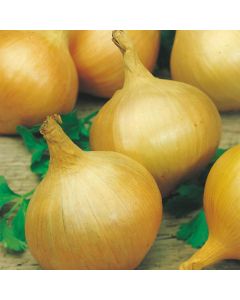 Country Value Onion Bedfordshire Champion£0.83 £0.83available for collection fromPlease select a Branch to view stock levelsPlease select all required options to show stock at
Country Value Onion Bedfordshire Champion£0.83 £0.83available for collection fromPlease select a Branch to view stock levelsPlease select all required options to show stock at -
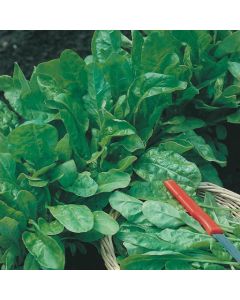 Country Value Spinach Beet Perpetual Spinach£0.83 £0.83available for collection fromPlease select a Branch to view stock levelsPlease select all required options to show stock at
Country Value Spinach Beet Perpetual Spinach£0.83 £0.83available for collection fromPlease select a Branch to view stock levelsPlease select all required options to show stock at -
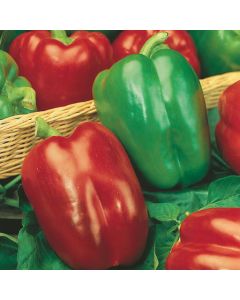 Country Value Pepper (Sweet) California Wonder£0.83 £0.83available for collection fromPlease select a Branch to view stock levelsPlease select all required options to show stock at
Country Value Pepper (Sweet) California Wonder£0.83 £0.83available for collection fromPlease select a Branch to view stock levelsPlease select all required options to show stock at -
 Country Value Radish Scarlet Globe£0.83 £0.83available for collection fromPlease select a Branch to view stock levelsPlease select all required options to show stock at
Country Value Radish Scarlet Globe£0.83 £0.83available for collection fromPlease select a Branch to view stock levelsPlease select all required options to show stock at -
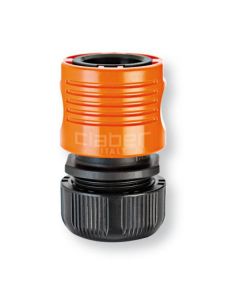 Claber Automatic Coupling 1/2"£6.76 £5.63available for collection fromPlease select a Branch to view stock levelsPlease select all required options to show stock at
Claber Automatic Coupling 1/2"£6.76 £5.63available for collection fromPlease select a Branch to view stock levelsPlease select all required options to show stock at -
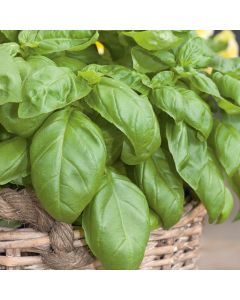 Country Value Basil Sweet£0.83 £0.83available for collection fromPlease select a Branch to view stock levelsPlease select all required options to show stock at
Country Value Basil Sweet£0.83 £0.83available for collection fromPlease select a Branch to view stock levelsPlease select all required options to show stock at -
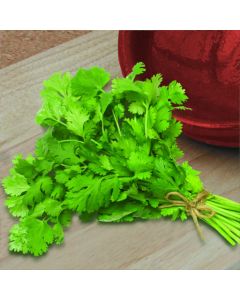 Country Value Coriander£0.83 £0.83available for collection fromPlease select a Branch to view stock levelsPlease select all required options to show stock at
Country Value Coriander£0.83 £0.83available for collection fromPlease select a Branch to view stock levelsPlease select all required options to show stock at -
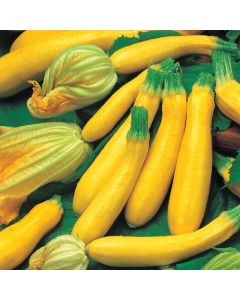 Country Value Courgette Goldena£0.83 £0.83available for collection fromPlease select a Branch to view stock levelsPlease select all required options to show stock at
Country Value Courgette Goldena£0.83 £0.83available for collection fromPlease select a Branch to view stock levelsPlease select all required options to show stock at -
 Country Value Sweet William Single Mixed£1.00 £0.83available for collection fromPlease select a Branch to view stock levelsPlease select all required options to show stock at
Country Value Sweet William Single Mixed£1.00 £0.83available for collection fromPlease select a Branch to view stock levelsPlease select all required options to show stock at -
 Country Value Broccoli Early Purple (Sprouting)£0.83 £0.83available for collection fromPlease select a Branch to view stock levelsPlease select all required options to show stock at
Country Value Broccoli Early Purple (Sprouting)£0.83 £0.83available for collection fromPlease select a Branch to view stock levelsPlease select all required options to show stock at -
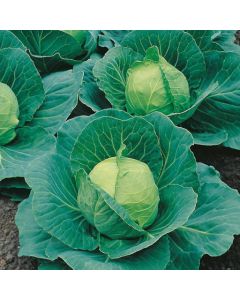 Country Value Cabbage Golden Acre (Primo 2)£0.83 £0.83available for collection fromPlease select a Branch to view stock levelsPlease select all required options to show stock at
Country Value Cabbage Golden Acre (Primo 2)£0.83 £0.83available for collection fromPlease select a Branch to view stock levelsPlease select all required options to show stock at -
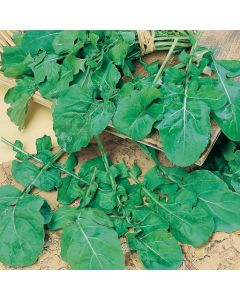 Country Value Rocket Salad Leaves£0.83 £0.83available for collection fromPlease select a Branch to view stock levelsPlease select all required options to show stock at
Country Value Rocket Salad Leaves£0.83 £0.83available for collection fromPlease select a Branch to view stock levelsPlease select all required options to show stock at -
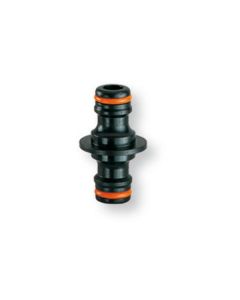 Claber Two Way Connector£3.76 £3.13available for collection fromPlease select a Branch to view stock levelsPlease select all required options to show stock at
Claber Two Way Connector£3.76 £3.13available for collection fromPlease select a Branch to view stock levelsPlease select all required options to show stock at -
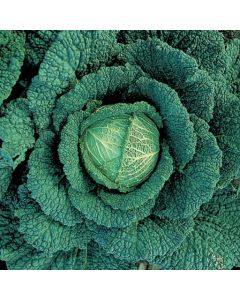 Country Value Cabbage (Savoy) Vertus 3£0.83 £0.83available for collection fromPlease select a Branch to view stock levelsPlease select all required options to show stock at
Country Value Cabbage (Savoy) Vertus 3£0.83 £0.83available for collection fromPlease select a Branch to view stock levelsPlease select all required options to show stock at -
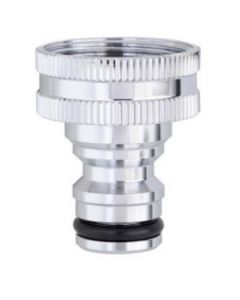 Claber Metal 3/4" Tap Connector£5.00 £4.17available for collection fromPlease select a Branch to view stock levelsPlease select all required options to show stock at
Claber Metal 3/4" Tap Connector£5.00 £4.17available for collection fromPlease select a Branch to view stock levelsPlease select all required options to show stock at -
 Country Value Brussels Sprout Evesham Special£0.83 £0.83available for collection fromPlease select a Branch to view stock levelsPlease select all required options to show stock at
Country Value Brussels Sprout Evesham Special£0.83 £0.83available for collection fromPlease select a Branch to view stock levelsPlease select all required options to show stock at -
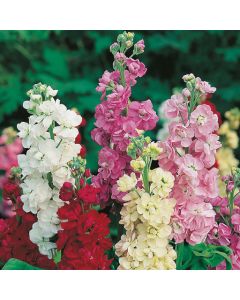 Country Value Stock Ten Week Mixed£1.00 £0.83available for collection fromPlease select a Branch to view stock levelsPlease select all required options to show stock at
Country Value Stock Ten Week Mixed£1.00 £0.83available for collection fromPlease select a Branch to view stock levelsPlease select all required options to show stock at -
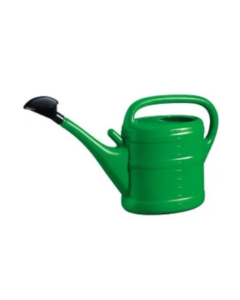 Green Watering Can - 10L£8.00 £6.67available for collection fromPlease select a Branch to view stock levelsPlease select all required options to show stock at
Green Watering Can - 10L£8.00 £6.67available for collection fromPlease select a Branch to view stock levelsPlease select all required options to show stock at -
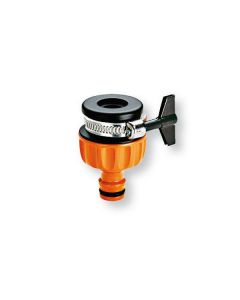 Claber Smooth Tap Connector£9.25 £7.71available for collection fromPlease select a Branch to view stock levelsPlease select all required options to show stock at
Claber Smooth Tap Connector£9.25 £7.71available for collection fromPlease select a Branch to view stock levelsPlease select all required options to show stock at - New
 Country Value Parsley Plain Leaved 2£0.83 £0.83available for collection fromPlease select a Branch to view stock levelsPlease select all required options to show stock at
Country Value Parsley Plain Leaved 2£0.83 £0.83available for collection fromPlease select a Branch to view stock levelsPlease select all required options to show stock at -
 Country Value Cauliflower All the Year Round£0.83 £0.83available for collection fromPlease select a Branch to view stock levelsPlease select all required options to show stock at
Country Value Cauliflower All the Year Round£0.83 £0.83available for collection fromPlease select a Branch to view stock levelsPlease select all required options to show stock at -
 Watering Can 5L£6.00 £5.00available for collection fromPlease select a Branch to view stock levelsPlease select all required options to show stock at
Watering Can 5L£6.00 £5.00available for collection fromPlease select a Branch to view stock levelsPlease select all required options to show stock at -
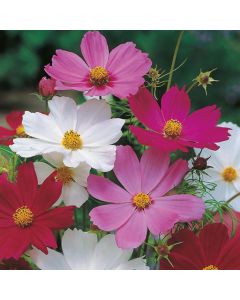 Country Value Cosmos Sensation Mixed Seeds£1.00 £0.83available for collection fromPlease select a Branch to view stock levelsPlease select all required options to show stock at
Country Value Cosmos Sensation Mixed Seeds£1.00 £0.83available for collection fromPlease select a Branch to view stock levelsPlease select all required options to show stock at -
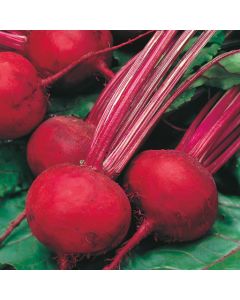 Country Value Beetroot Boltardy Seeds£0.83 £0.83available for collection fromPlease select a Branch to view stock levelsPlease select all required options to show stock at
Country Value Beetroot Boltardy Seeds£0.83 £0.83available for collection fromPlease select a Branch to view stock levelsPlease select all required options to show stock at -
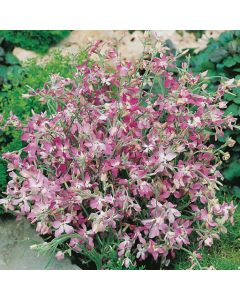 Country Value Stock Night Scented£1.00 £0.83available for collection fromPlease select a Branch to view stock levelsPlease select all required options to show stock at
Country Value Stock Night Scented£1.00 £0.83available for collection fromPlease select a Branch to view stock levelsPlease select all required options to show stock at -
 Country Value Sweet Corn Incredible F1£0.83 £0.83available for collection fromPlease select a Branch to view stock levelsPlease select all required options to show stock at
Country Value Sweet Corn Incredible F1£0.83 £0.83available for collection fromPlease select a Branch to view stock levelsPlease select all required options to show stock at - New
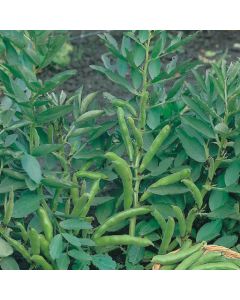 Country Value Broad Bean The Sutton£1.25 £1.25available for collection fromPlease select a Branch to view stock levelsPlease select all required options to show stock at
Country Value Broad Bean The Sutton£1.25 £1.25available for collection fromPlease select a Branch to view stock levelsPlease select all required options to show stock at -
 Country Value Pea Kelvedon Wonder£1.08 £1.08available for collection fromPlease select a Branch to view stock levelsPlease select all required options to show stock at
Country Value Pea Kelvedon Wonder£1.08 £1.08available for collection fromPlease select a Branch to view stock levelsPlease select all required options to show stock at -
 Country Value Poached Egg Plant£0.83 £0.83available for collection fromPlease select a Branch to view stock levelsPlease select all required options to show stock at
Country Value Poached Egg Plant£0.83 £0.83available for collection fromPlease select a Branch to view stock levelsPlease select all required options to show stock at -
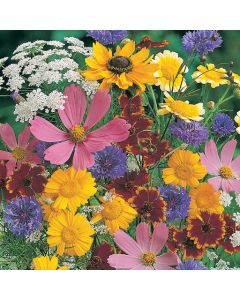 Country Value Wildlife Attracting Mixed£1.00 £0.83available for collection fromPlease select a Branch to view stock levelsPlease select all required options to show stock at
Country Value Wildlife Attracting Mixed£1.00 £0.83available for collection fromPlease select a Branch to view stock levelsPlease select all required options to show stock at -
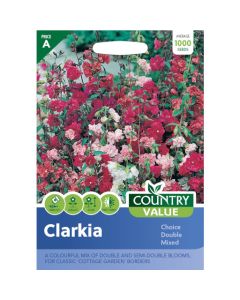 Country Value Clarkia Choice Double Mixed£0.83 £0.83available for collection fromPlease select a Branch to view stock levelsPlease select all required options to show stock at
Country Value Clarkia Choice Double Mixed£0.83 £0.83available for collection fromPlease select a Branch to view stock levelsPlease select all required options to show stock at -
 Country Value Lobelia Cascade Mixed Seeds£1.00 £0.83available for collection fromPlease select a Branch to view stock levelsPlease select all required options to show stock at
Country Value Lobelia Cascade Mixed Seeds£1.00 £0.83available for collection fromPlease select a Branch to view stock levelsPlease select all required options to show stock at -
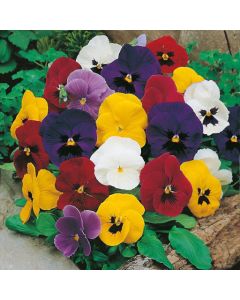 Country Value PANSY 'Early' Flowering Mixed£1.00 £0.83available for collection fromPlease select a Branch to view stock levelsPlease select all required options to show stock at
Country Value PANSY 'Early' Flowering Mixed£1.00 £0.83available for collection fromPlease select a Branch to view stock levelsPlease select all required options to show stock at -
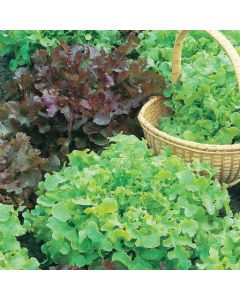 Country Value Lettuce Salad Bowl Red and Green£0.83 £0.83available for collection fromPlease select a Branch to view stock levelsPlease select all required options to show stock at
Country Value Lettuce Salad Bowl Red and Green£0.83 £0.83available for collection fromPlease select a Branch to view stock levelsPlease select all required options to show stock at -
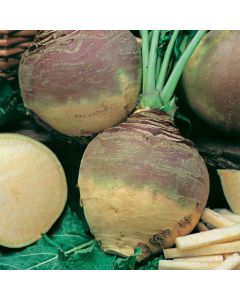 Country Value Swede Best of All£0.83 £0.83available for collection fromPlease select a Branch to view stock levelsPlease select all required options to show stock at
Country Value Swede Best of All£0.83 £0.83available for collection fromPlease select a Branch to view stock levelsPlease select all required options to show stock at -
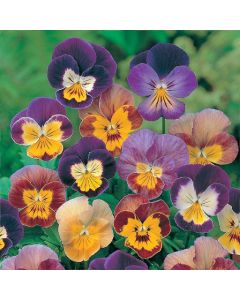 Country Value Viola Bambini Mixed£1.00 £0.83available for collection fromPlease select a Branch to view stock levelsPlease select all required options to show stock at
Country Value Viola Bambini Mixed£1.00 £0.83available for collection fromPlease select a Branch to view stock levelsPlease select all required options to show stock at -
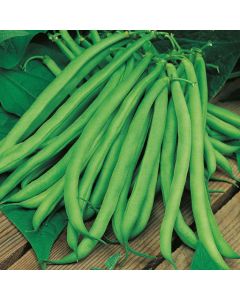 Country Value Climbing Bean Blue Lake Seeds£1.08 £1.08available for collection fromPlease select a Branch to view stock levelsPlease select all required options to show stock at
Country Value Climbing Bean Blue Lake Seeds£1.08 £1.08available for collection fromPlease select a Branch to view stock levelsPlease select all required options to show stock at -
 Claber Automatic Coupling Starter Set£17.00 £14.17available for collection fromPlease select a Branch to view stock levelsPlease select all required options to show stock at
Claber Automatic Coupling Starter Set£17.00 £14.17available for collection fromPlease select a Branch to view stock levelsPlease select all required options to show stock at -
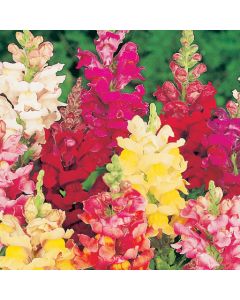 Country Value Antirrhinum Intermediate Mixed£1.00 £0.83available for collection fromPlease select a Branch to view stock levelsPlease select all required options to show stock at
Country Value Antirrhinum Intermediate Mixed£1.00 £0.83available for collection fromPlease select a Branch to view stock levelsPlease select all required options to show stock at -
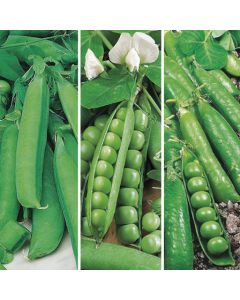 Country Value Peas & Beans Collection£1.99 £1.99available for collection fromPlease select a Branch to view stock levelsPlease select all required options to show stock at
Country Value Peas & Beans Collection£1.99 £1.99available for collection fromPlease select a Branch to view stock levelsPlease select all required options to show stock at -
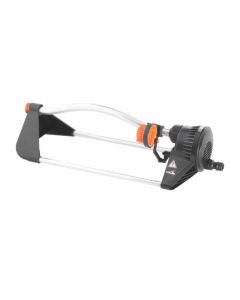 Claber Sprinkler Compact£20.26 £16.88available for collection fromPlease select a Branch to view stock levelsPlease select all required options to show stock at
Claber Sprinkler Compact£20.26 £16.88available for collection fromPlease select a Branch to view stock levelsPlease select all required options to show stock at -
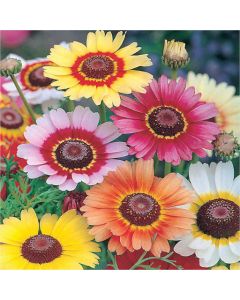 Country Value Chrysanthemum Rainbow Mix Seeds£1.00 £0.83available for collection fromPlease select a Branch to view stock levelsPlease select all required options to show stock at
Country Value Chrysanthemum Rainbow Mix Seeds£1.00 £0.83available for collection fromPlease select a Branch to view stock levelsPlease select all required options to show stock at -
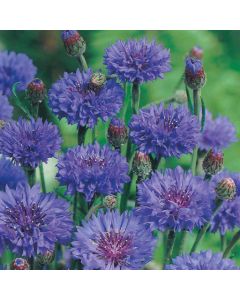 Country Value Cornflower Blue Ball Seeds£1.00 £0.83available for collection fromPlease select a Branch to view stock levelsPlease select all required options to show stock at
Country Value Cornflower Blue Ball Seeds£1.00 £0.83available for collection fromPlease select a Branch to view stock levelsPlease select all required options to show stock at -
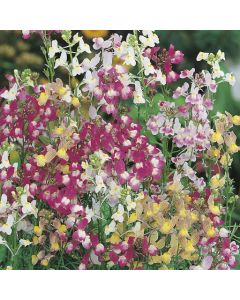 Country Value RHS Linaria Fairy Bouquet£1.00 £0.83available for collection fromPlease select a Branch to view stock levelsPlease select all required options to show stock at
Country Value RHS Linaria Fairy Bouquet£1.00 £0.83available for collection fromPlease select a Branch to view stock levelsPlease select all required options to show stock at -
 Country Value Nasturtium Jewel Mixed Seeds£0.83 £0.83available for collection fromPlease select a Branch to view stock levelsPlease select all required options to show stock at
Country Value Nasturtium Jewel Mixed Seeds£0.83 £0.83available for collection fromPlease select a Branch to view stock levelsPlease select all required options to show stock at -
 Country Value Mixed Salad Leaves Spicy£0.83 £0.83available for collection fromPlease select a Branch to view stock levelsPlease select all required options to show stock at
Country Value Mixed Salad Leaves Spicy£0.83 £0.83available for collection fromPlease select a Branch to view stock levelsPlease select all required options to show stock at -
 Country Value Coleus Rainbow Mixed£1.00 £0.83available for collection fromPlease select a Branch to view stock levelsPlease select all required options to show stock at
Country Value Coleus Rainbow Mixed£1.00 £0.83available for collection fromPlease select a Branch to view stock levelsPlease select all required options to show stock at -
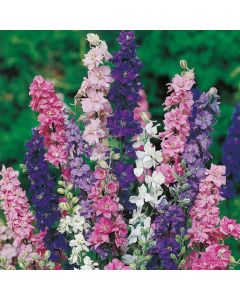 Country Value Larkspur Giant Imperial Mixed£1.00 £0.83available for collection fromPlease select a Branch to view stock levelsPlease select all required options to show stock at
Country Value Larkspur Giant Imperial Mixed£1.00 £0.83available for collection fromPlease select a Branch to view stock levelsPlease select all required options to show stock at -
 Country Value Poppy Shirley Single Mixed£0.83 £0.83available for collection fromPlease select a Branch to view stock levelsPlease select all required options to show stock at
Country Value Poppy Shirley Single Mixed£0.83 £0.83available for collection fromPlease select a Branch to view stock levelsPlease select all required options to show stock at -
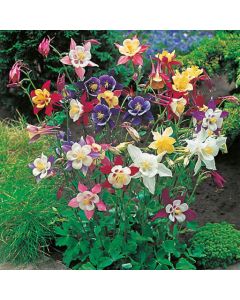 Country Value Aquilegia McKana Mixed Seeds£1.00 £0.83available for collection fromPlease select a Branch to view stock levelsPlease select all required options to show stock at
Country Value Aquilegia McKana Mixed Seeds£1.00 £0.83available for collection fromPlease select a Branch to view stock levelsPlease select all required options to show stock at -
 Country Value Lobelia Crystal Palace£1.00 £0.83available for collection fromPlease select a Branch to view stock levelsPlease select all required options to show stock at
Country Value Lobelia Crystal Palace£1.00 £0.83available for collection fromPlease select a Branch to view stock levelsPlease select all required options to show stock at - New
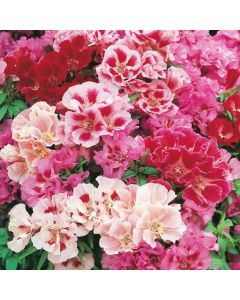 Country Value Godetia Dwarf Mixed£1.00 £0.83available for collection fromPlease select a Branch to view stock levelsPlease select all required options to show stock at
Country Value Godetia Dwarf Mixed£1.00 £0.83available for collection fromPlease select a Branch to view stock levelsPlease select all required options to show stock at -
 Country Value Cucumber Telegraph Improved£0.83 £0.83available for collection fromPlease select a Branch to view stock levelsPlease select all required options to show stock at
Country Value Cucumber Telegraph Improved£0.83 £0.83available for collection fromPlease select a Branch to view stock levelsPlease select all required options to show stock at -
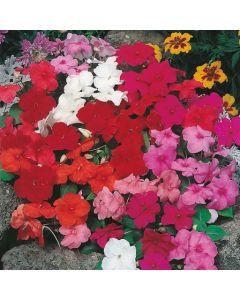 Country Value Busy Lizzie Mixed F2 Seeds£1.00 £0.83available for collection fromPlease select a Branch to view stock levelsPlease select all required options to show stock at
Country Value Busy Lizzie Mixed F2 Seeds£1.00 £0.83available for collection fromPlease select a Branch to view stock levelsPlease select all required options to show stock at -
 Country Value Candytuft Fairy Mixed Seeds£1.00 £0.83available for collection fromPlease select a Branch to view stock levelsPlease select all required options to show stock at
Country Value Candytuft Fairy Mixed Seeds£1.00 £0.83available for collection fromPlease select a Branch to view stock levelsPlease select all required options to show stock at -
 Country Value Echium Blue Bedder Seeds£1.00 £0.83available for collection fromPlease select a Branch to view stock levelsPlease select all required options to show stock at
Country Value Echium Blue Bedder Seeds£1.00 £0.83available for collection fromPlease select a Branch to view stock levelsPlease select all required options to show stock at -
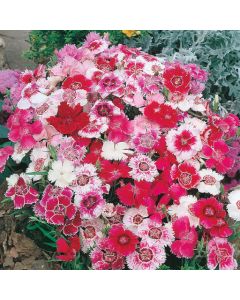 Country Value Dianthus Baby Doll Mixed£1.00 £0.83available for collection fromPlease select a Branch to view stock levelsPlease select all required options to show stock at
Country Value Dianthus Baby Doll Mixed£1.00 £0.83available for collection fromPlease select a Branch to view stock levelsPlease select all required options to show stock at -
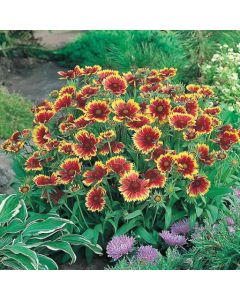 Country Value Gaillardia Goblin Seeds£1.00 £0.83available for collection fromPlease select a Branch to view stock levelsPlease select all required options to show stock at
Country Value Gaillardia Goblin Seeds£1.00 £0.83available for collection fromPlease select a Branch to view stock levelsPlease select all required options to show stock at




